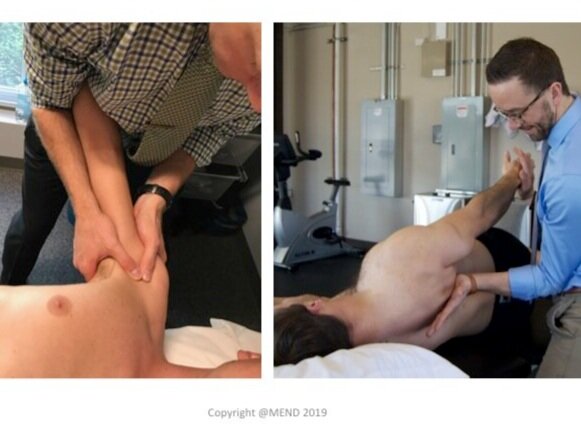Frozen Shoulder (Adhesive Capsulitis) is a less common source of shoulder pain affecting around 3% of all adults. Its’ prevalence is significantly increased up to 40% in patients with diabetes or thyroid disorders. This condition most commonly occurs between the ages of 40 and 65 years old and affects females more than males. Adhesive Capsulitis can be extremely painful in its’ early stages as the acute inflammatory process affects the joint’s synovial membrane and capsule before transitioning to capsular fibrosis and a progressive loss of shoulder range of motion.
Frozen Shoulder can be frustratingly slow to heal and recovery can last up to 1-2 years after onset of symptoms. Researchers have established corticosteroid injections provided by physicians and physical therapy interventions in the early and late phases, respectively, have been shown to reduce symptoms and the duration of recovery. Specifically, a combination of Physical Therapy spinal and shoulder manual therapy, as well as, mobility and shoulder strengthening exercises are most effective. Surgery and manipulation under anesthesia (MUA) have also been suggested for some patients who do not respond to more conservative treatments. A recent randomized controlled trial was published on their effectiveness vs. Physical Therapy.
Rangan and colleagues published their large trial in the journal The Lancet (2020). Authors randomized over 500 patients with frozen shoulder to one of three groups including arthroscopic capsular release, manipulation under anesthesia, and Physical Therapy. Authors followed subjective and objective outcomes over the course of 12 months. As expected authors found no significant differences between treatment groups despite the increased risk with the less conservative treatments including surgery and manipulation under anesthesia. They reported 8 serious adverse events with surgery and 2 with manipulation under anesthesia.
Click Here to schedule your next appointment with the experts at MEND

